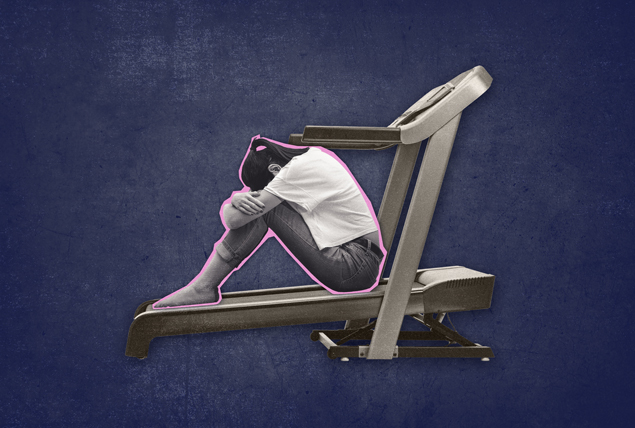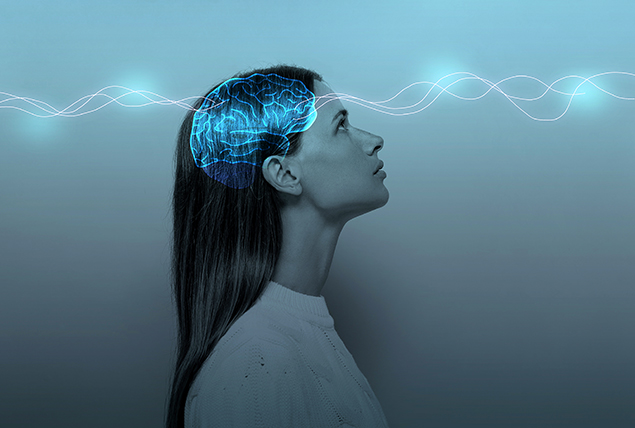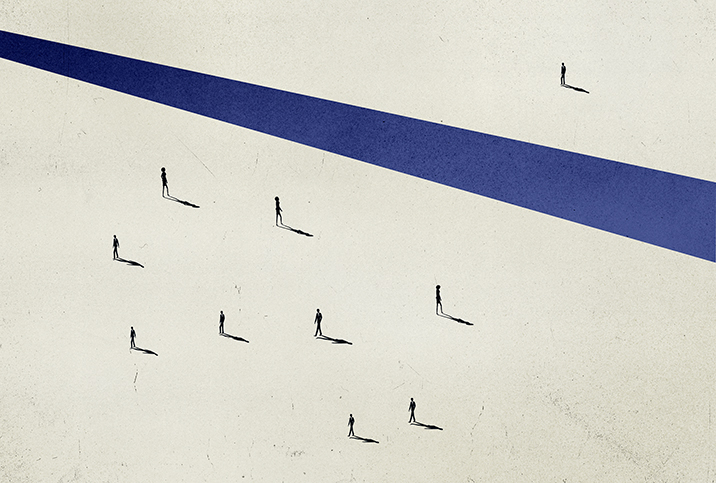Self-Care Strategies That Guard You Against Depression

Everyone will experience some variation of depression in their life and everyone will have to figure out how to get out of it. There are many options and resources to turn to, but deep self-care can help. Here's how.
Create a thoughtful checklist of self-care strategies
Depression is characterized by persistent feelings of sadness, hopelessness and loneliness that make daily living a struggle. But there are strategies that can help ease depressive symptoms you might experience.
"It is important to shore up your healthy routines during good times because those habits will carry you through the next storm," said Corinne Novella, L.C.S.W., a therapist working in New York City.
She recommends creating a thoughtful self-care checklist of what you must do to take good care of yourself and pin it up in a place you see regularly.
"When someone is under duress, most self-care goes out the window," she said. "It's the first thing that stops. People stop exercising and they start eating poorly. It's what people do. The internal desire is just to seek comfort."
People who have strong self-care routines in place have an easier time sustaining these habits when depressive episodes occur.
"We are creatures of habit," Novella said. "Make a list of the things that you know you stop doing when you're depressed—brush your teeth, take a shower, eat breakfast, go to the gym, visit your friend—anything you need to do on a daily or weekly basis to care for yourself and to keep depression from spiraling."
It's hard to make yourself do things when you are depressed and you have no energy or interest. The specifics on each list will vary from person to person, but studies have highlighted some important habits that protect our good moods and help pull us out of a depressive episode.
Let's take a look below.
Regular exercise
If it sometimes seems that exercise is promoted as a cure-all for virtually anything to do with your body or mind, that's because it pretty much is. This includes preventing and recovering from depression.
The current treatments for depression are antidepressants, psychotherapy or a combination of these two. But only about half of patients report resolution of their symptoms using therapy or antidepressants, according to a 2021 report.
Physical activity may provide quick and longer-lasting relief from depression when compared to medication, indicated a 2023 report. Even a modest amount of exercise, such as walking for 15 to 30 minutes a day, five times a week, is associated with up to a 25 percent reduction in risk.
Exercise can alleviate the symptoms of depression and, according to a 2018 report, can even help prevent depression.
There are a few theories for why exercise is good for our mental health.
It increases a person's feeling of self-efficacy, which is their belief they can do the things necessary to reach their goals. It can also boost your belief in yourself which combats feelings of helplessness.
"Exercise also naturally releases feel-good hormones, the natural opioids that dull pain and give you a positive, euphoric feeling," said Sally Twellman, B.S., a functional nutrition coach in Austin, Texas. "It helps with sleep and decreases overall inflammation, both of which help improve mental health."
Connection with others
Depression and isolation often coexist, one frequently leading to the other. Humans are social animals and we need to connect with others to thrive. Even cuddling pets can release oxytocin, the happy hormone.
Novella noted that one of the first outward signs of depression is self-imposed isolation.
There are many reasonable reasons why someone experiencing depression isolates themselves, and yet it's a tendency worth fighting. Disconnecting from your social support allows a too-easy freefall into despair.
"We can stop caring about a lot of stuff—how we look, how we feel, how to interact with others—when we don't see other people," Novella said. "Once that starts, people lose the external motivation to take care of themselves."
As part of your self-care strategies, make a note of the people you like to stay in touch with regularly. Then mark the closest one or two as your emergency support, the ones you will turn to when you notice you have started to pull away from your group.
Sleep
Good sleep is the cornerstone of good physical and mental health.
Insomnia and depression usually occur together, so much so that some advise caution in making a diagnosis of depression if there are no sleep disturbances.
However, people who have insomnia are at risk of developing depression, and another episode of depression is more likely in people who continue to have sleep disorders after they have recovered from depression.
"Sleep is integral to all of our health, but in particular our mental health," Twellman said. "During deep sleep, the brain 'cleans' the brain."
Cerebrospinal fluid floods the brain during deep sleep, removing metabolic waste and improving the health of the brain, suggested a 2019 report.
The connection between a good night's sleep and good mental health is not fully understood, and yet it's undeniable. Even one night of poor sleep can affect your mood the next day.
It isn't hard to know what to do for a good night's sleep, the hard part is just doing it. The general recommendations to get better sleep include:
- Avoiding alcohol.
- Getting early morning sunlight in your eyes.
- Going to sleep and waking up at consistent times.
- Keeping your bedroom cool and dark.
- Staying off TV and computer screens immediately before going to sleep.
All of these take discipline—which is often in short supply when you're feeling down.
Include these important habits as part of your self-care strategies and then follow through on your plan.
Laughter
Laughter is the best medicine, suggested a 2016 study—and for good reason. It's readily available, free and even the placebo works.
"Laughter is a natural stress reliever. It reduces levels of stress hormones such as cortisol and adrenaline and boosts endorphins," Twellman said. "It alleviates feelings of tension and anxiety, and it also improves social connections when you laugh with friends."
A simple smile releases neurotransmitters that can improve your mood. And, yes, even fake smiling and forced laughter work, too.
So when you're depressed and need some levity, turn on a comedy show, sitcom or a video of laughing goats and laugh along. Even if you start out feeling awkward, stick with it. You might just feel better.
The bottom line
There are all kinds of ways you can help yourself out of a bad mood. Make a list and experiment, try a few things and see what works for you. They'll be your go-to self-care strategies for the next time you need to boost your mood.
If you or a loved one are sinking into deep despair, don't wait. Please see a medical professional for help.


















